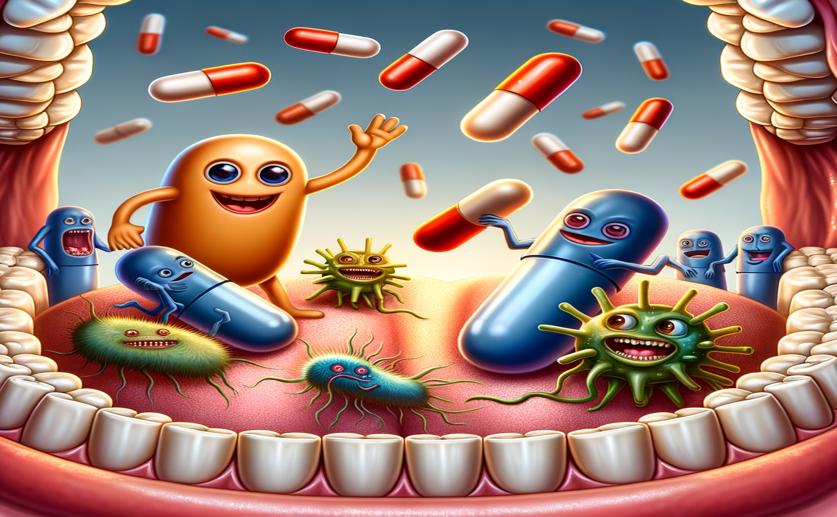
Safe and Helpful Bacteria Fighting Mouth Germs and Drug Resistance
Jim Crocker
4th April, 2024

Image Source: Natural Science News, 2024
Key Findings
- Study at Handong Global University found certain bacteria from kimchi and banana safe for potential health use
- These bacteria can survive harsh conditions like those in the human gut, suggesting they could benefit health when ingested
- The bacteria were also shown to inhibit oral pathogens, indicating potential for oral health applications
References
Main Study
1) Safety and Beneficial Properties of Bacteriocinogenic Lactococcus lactis and Pediococcus pentosaceus Strains, and Their Effect Versus Oral Cavity Related and Antibiotic-Resistant Pathogens.
Published 2nd April, 2024
https://doi.org/10.1007/s12602-024-10245-z
Related Studies
2) Bacteriocins of Gram-positive bacteria having activity spectra extending beyond closely-related species.
3) Use of Bacteriocins and Bacteriocinogenic Beneficial Organisms in Food Products: Benefits, Challenges, Concerns.
4) Functions and emerging applications of bacteriocins.
5) Expert consensus document. The International Scientific Association for Probiotics and Prebiotics consensus statement on the scope and appropriate use of the term probiotic.



 24th January, 2024 | David Palenski
24th January, 2024 | David Palenski